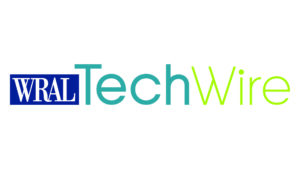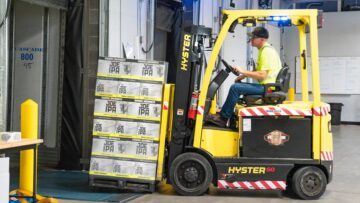Editor’s note: John Boyd, Jr. is Principal at The Boyd Company, which focuses on corporate site development. Boyd is one of the best known executives in the site selection business. WRAL TechWire asked him for his assessment of why and how North Carolina won the competition for Durham-based Wolfspeed’s expected announcement on Friday confirming its selection of Chatham County for a new semiconductor chip factory.
+++
There is an old expression used by veteran economic development practitioners: “You fish where the fish are.” This is still true, but what we are seeing now in pro-business states like North Carolina are “fish jumping into your boat,” especially in the EV and semiconductor fields fueled by massive federal incentives to help jump start the reshoring of these industries back to America from China and Southeast Asia.
The Wolfspeed decision to invest in northern Chatham County is the latest example of these mega, high tech projects coming to North Carolina, joining others like Vinfast going into Triangle Innovation Point in Chatham County and Toyota constructing new EV operations at Liberty’s Randolph Mega Site in the Triad Region.
John Boyd, Jr., principal of The Boyd Group. Image provided by The Boyd Group.
Give credit to Sanjay Mehrotra, CEO of Boise, Idaho-based Micron, who was perfectly candid the other day when he said his company’s new mega investments in Central Texas and Idaho were made possible by the recent passage of the CHIPS and Science ACT, the $280 billion bill aimed at bolstering U.S. competitiveness against China and avoiding another chip shortage like the one that has derailed a wide range of high and low tech manufacturing operations around the globe.
Toyota doubles investment for NC battery plant to $2.5B adding hundreds of jobs
The tide of new deals for NC
In the Triad, Toyota Motor Corp. just announced plans for an additional 350 jobs and $2.5 billion investment at the Liberty electric vehicle battery plant as construction commences at the mega site. The Toyota subsidiary plans to build lithium-ion batteries at the plant for about 200,000 hybrid and electric vehicles annually. Federal green incentives and numerous other EV projects of Ford, GM, Stellantis, LG & Honda, Tesla around the country also point to an undeniable electric future for the U.S. auto industry. Also, next week, chipmaker Intel Corp. will break ground on its planned $20 billion Ohio semiconductor plant, the largest industrial project in that state’s history.
VinFast buys land at site of future $4B plant in Chatham County for $44M
We see North Carolina continuing on a roll in attracting new EV and chip manufacturing to the state. On the EV front, North Carolina’s is one of the world’s largest providers of lithium to the EV battery industry on the strength of its huge hard rock lithium deposits. World-class research on lithium and EV battery development has been carried out in North Carolina State University and UNC for years now and is contributing heavily to the state’s success in this burgeoning field.
Wolfspeed picks Chatham County for new semiconductor plant, 1800 jobs
Labor force needs
Can the state provide the labor resources to staff these major new EV and chip plants? Absolutely. Our firm was asked this same question a few decades ago as to whether the Greenville/Spartanburg area in South Carolina could support BMW and the nascent automaking industry there. We answered yes on the strength of the area’s lifestyle attractiveness and attractive wages and benefits paid by the auto industry that would translate into the acceptance long commutes and, more importantly, large scale relocations to Upstate South Carolina. BMW alone employs over 10,000 workers now at its Spartanburg area plant.
North Carolina’s workforce training program through its stellar community college system is the gold standard in the economic development field and is a key asset for the further attraction of major players in the tech, EV and pharma sectors. These industries demand a highly skilled workforce and North Carolina has workforce training and continuing education infrastructure to deliver on the human capital side of the equation.
Other appealing strengths to businesses
I see the same scenario playing out in North Carolina leveraging its low taxes, affordable housing (by Northeast and California standards) and access to lifestyle amenities in the mountains, at the shore and in urban playgrounds. Transferring people into North Carolina has always been an easy sell for Boyd Co. clients like Dell, PepsiCo, Pratt & Whitney, GlaxoSmithKline e.g.
Another valuable labor resource for these companies coming into North Carolina are grads of N.C. State, UNC Chapel Hill, Duke and the other North Carolina universities that want to remain in the state post graduation or come home to raise a family and advance their careers later in life.
Other site selection fundamentals are strong for North Carolina such as water resources, affordable and reliable power, a positive labor-management relations climate and a highly competitive financial incentive program to help write down the huge capital costs associated with these new mega, high tech plants.













